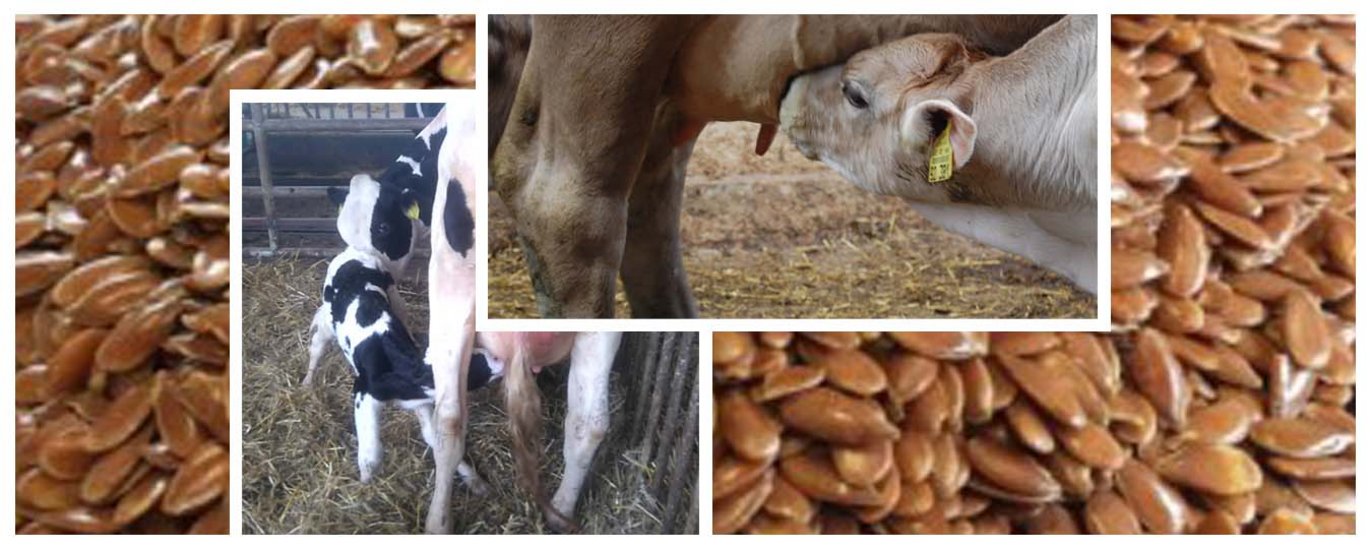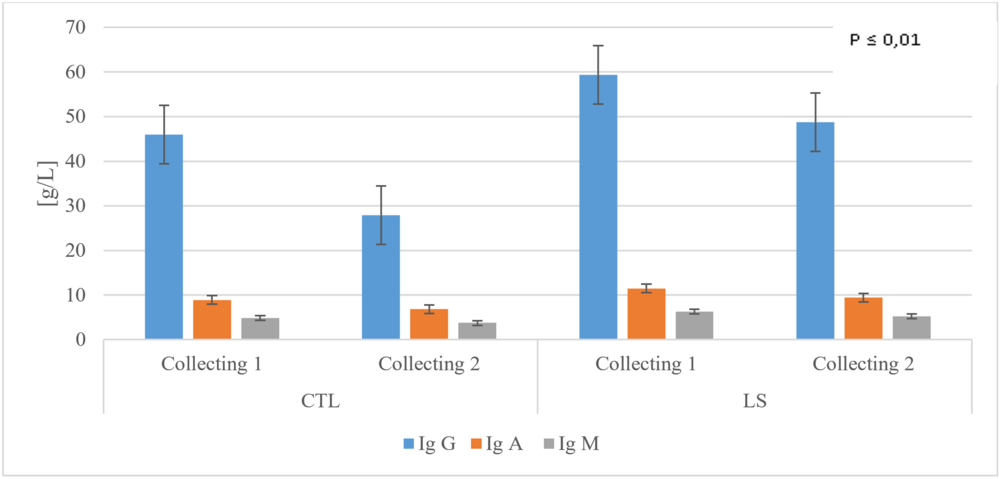Linseed supplementation of dairy cows that improve colostrum immunological quality
To prevent health problems, calves should be fed only high-quality colostrum containing at least 50 g/L of immunoglobulins. A study, carried out within the ProYoungStock project, leads to the recommendation that cows should get 300 g linseeds (rich in Omega-3 FA) daily at least 30 days before calving until 30 days after calving.

The aim of a study, carried out within the ProYoungStock project, was to determine the influence of linseed supplementation in feed ration of the dam on the quality of colostrum she produced from calving up to 7th day.
The immunoglobulin G is the most important immune protein in the calf's passive immunization. The colostrum assigned to the supplemented group (LS) from the 1st and 2nd collection was characterized by a statistically significantly higher concentration of Ig type G, respectively: 59.358 g / L and 48.78 g / L, compared to the no supplemented control group (CTL) from the 1st and 2nd intake: 46.011 g / L and 27.889 g / L (Figure 1).
The colostrum of the LS group from the 1st and 2nd intake was characterized also by a significantly higher concentration of vitamin A: 1.574 mg/L and 1.318 mg/L, respectively, compared to CTL from the 1st and 2nd intake: 0.621 mg/L and 0.549 mg/L.
Linseed supplementation on selected PUFA content in LS group colostrum from the 1st and 2nd intake had a significant impact on higher concentration of C18: 2 cis9 trans11 in colostrum: 0.326 g/100g fat and 0.722 g/100g fat, respectively, compared to CTL from the 1st and 2nd intake: 0.316 g/100g of fat and 0.347g/100g of fat. It should be emphasized that C18: 2 n-6 and C18: 3 n-3 inactivate methicillin-resistant S. aureus strains. In addition, C18: 3 n-3 supports the adhesion of Lactobacillus casei on the mucosa surface and stimulates their growth, while limiting the development of pathogenic bacteria of the genus Helicobacter, Shigella, Salmonella, Pseudomonas. Therefore, it can be concluded that colostrum characterized by a higher concentration of polyunsaturated fatty acids, thanks to its higher immunostimulatory properties, improves calves rearing in first weeks of their life.

Figure 1: Influence of the applied linseed supplementation on the formation of immunoglobulins in the first two colostrum samplings. (CTL – control group, LS – supplemented group)
Practical recommendation
The use of fatty additives in the form of linseeds is a fairly simple procedure to be put into practice, enabling the beneficial modification of the immune components of the colostrum.
The performed research proved a significant (p ≤ 0.01) influence of the applied supplementation on increase of the Ig G level. The sufficient concentration of type G Ig in good quality colostrum should be higher than 50 g/L. With an average absorption of immunoglobulins by the intestines (20–30 percent), the calf should consume 100–200 g of Ig G within six hours after calving, which is guaranteed by an appropriate passive transfer.
Relevant link(s)
https://doi.org/10.1371/journal.pone.0237615
https://doi:10.3390/ani10081293
https://doi.org/10.1038/s41598-021-95283-1
Author(s) info
Kamila Puppel, WULS Warszawa, Poland, kamila_puppel@sggw.edu.pl
Tomasz Sakowski, IGiBZ PAN Jastrzębiec, Poland, https://www.igbzpan.pl/en/dr-hab-tomasz-sakowski-1, t.sakowski@igbzpan.pl
Editor: Karin Ullven / Design: Anton Brander Lichtenberg
